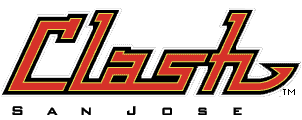
The Tampa Bay Mutiny were an American professional soccer team based in Tampa, Florida. The club competed in Major League Soccer (MLS) as a member of the Eastern Conference. The Mutiny were a charter member of MLS, playing from 1996 to 2001. The team played its home games at Tampa Stadium and then at Raymond James Stadium.

Chad Marshall is an American former professional soccer player. During his 16-year career, he played for Columbus Crew and Seattle Sounders FC in Major League Soccer. Regarded as one of the league's greatest players of all time, he was a three-time MLS Defender of the Year Award winner, two-time MLS Cup winner, four-time Supporters' Shield winner, a U.S. Open Cup winner, and was selected to four All-Star teams.

Steve Ralston is an American former soccer player and manager who played as a midfielder. He spent most of his playing career in Major League Soccer with the Tampa Bay Mutiny and the New England Revolution, retiring in 2010 as the league's all-time career leader in assists (135), appearances (378), starts (372), and minutes played (33,143). He also held the U.S. record for professional appearances (412) in 2010. In 2020, Major League Soccer selected Ralston as one of the greatest players in league history.

Frank Walter Yallop is a British-Canadian professional soccer coach and former player.

Edson Michael Buddle is an American former professional soccer player who is currently the head coach of USL League Two side Westchester Flames. He is one of only 13 players to have scored 100 goals in Major League Soccer history.

Ramiro Corrales is an American former professional soccer player. He spent most of his professional playing career with the San Jose Earthquakes in Major League Soccer.

MLS Cup 2001 was the sixth edition of the MLS Cup, the championship match of Major League Soccer (MLS), which took place on October 21, 2001, at Columbus Crew Stadium in Columbus, Ohio. It was contested by the San Jose Earthquakes and the Los Angeles Galaxy, a pair of in-state rivals from California, to decide the champion of the 2001 season. San Jose won their first title, defeating Los Angeles 2–1 in overtime with a golden goal scored by Dwayne De Rosario in the 96th minute.
Pete Marino is an American soccer forward currently playing for the Treasure Coast Galleons in the FESL. Marino spent six seasons in Major League Soccer and one USL Premier Development League.
William Thompson is a retired U.S. soccer player who is currently the club director for Los Gatos United. He earned one cap with the U.S. national team and played three seasons in Major League Soccer with the Columbus Crew.

MLS Cup 2008 was the 13th edition of the MLS Cup, the championship match of Major League Soccer (MLS). The soccer match took place on November 23, 2008, at the Home Depot Center in Carson, California, near Los Angeles. It was contested between Columbus Crew and New York Red Bulls, both from the league's Eastern Conference.

The 2010 Columbus Crew season was the fifteenth season of the team's existence and fifteenth in Major League Soccer (MLS).

The 2010 Lamar Hunt U.S. Open Cup Final was played on October 5, 2010, at Qwest Field in Seattle, Washington, United States. The match determined the winner of the 2010 U.S. Open Cup, a tournament open to amateur and professional soccer teams affiliated with the United States Soccer Federation. This was the 97th edition of the oldest competition in United States soccer. Seattle Sounders FC won the match, defeating the Columbus Crew 2–1 in front of a sellout crowd of 31,311, the highest attendance at a U.S. Open Cup final. Kevin Burns scored first, giving the Columbus Crew an early lead. Sanna Nyassi then scored both goals for Seattle Sounders FC as it became the first team since 1983 to win two consecutive U.S. Open Cup championships.
The 1996 D.C. United season was the teams debutant season in Major League Soccer (MLS), and 1996 was the inaugural year of play in MLS competition. United would become the first club to win the MLS Cup this year.
The 2011 Los Angeles Galaxy season was the club's 17th year of existence as well as their 16th season in Major League Soccer and their 16th consecutive year in the top-flight of American soccer. The Galaxy entered the season as the defending MLS Supporters' Shield titleholders.

Perry Allen Kitchen is an American former professional soccer player who played as a defensive midfielder.

Hector Osvaldo Jiménez is an American retired professional soccer player who played as a defender. He is currently an assistant coach with Major League Soccer club Chicago Fire.
The 1998 D.C. United season was the clubs' fourth year of existence, as well as their third season in Major League Soccer.

The 1998 San Jose Clash season was the third season of the team's existence.
The 2018 Columbus Crew SC season was the club's twenty-third season of existence, and their twenty-third consecutive season in Major League Soccer, the top flight of American soccer. Columbus also competed in the U.S. Open Cup, and took part in the Pacific Rim Cup and Carolina Challenge Cup during preseason. The season covered the period from November 30, 2017, to the start of the 2019 Major League Soccer season.
Miguel Berry is a Spanish professional footballer who plays as a striker for LA Galaxy in Major League Soccer.














